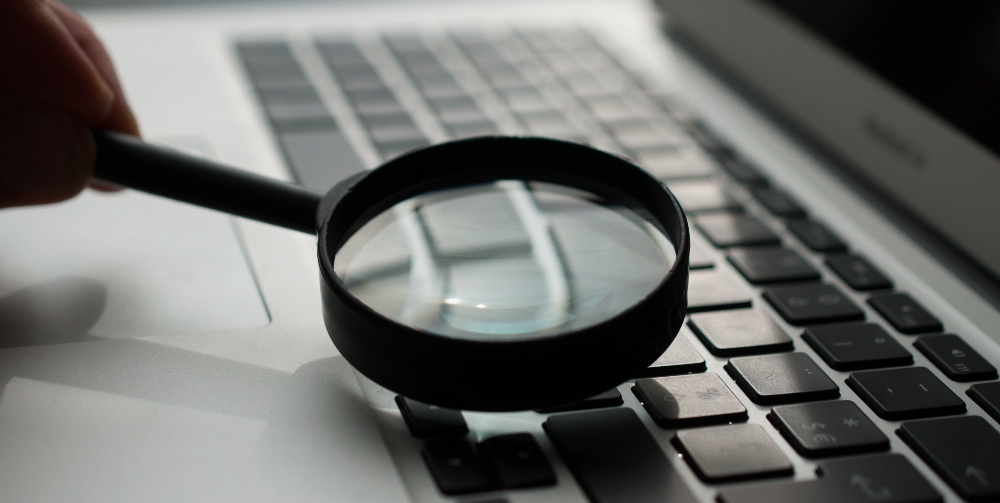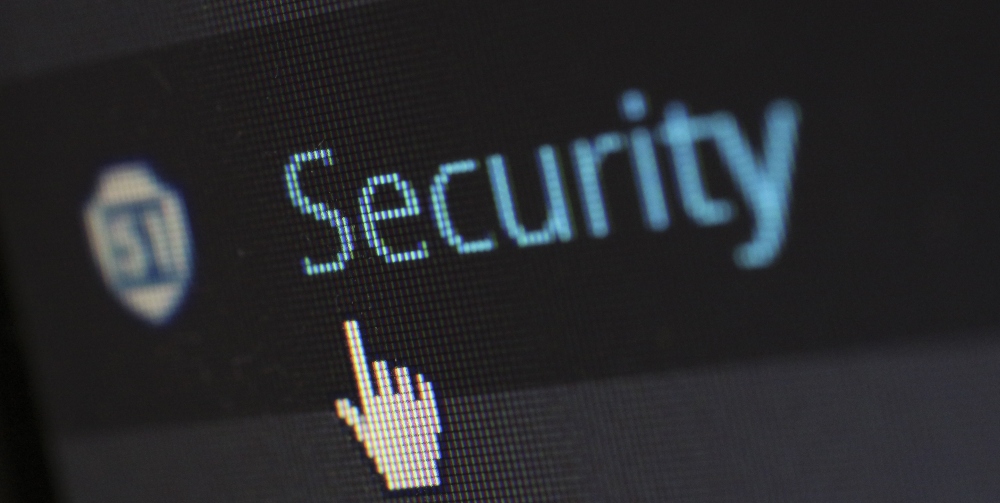
Cyber Security Audit: What Are the Benefits?
All
If you are going to be properly prepared for a cyber attack, cyber security audits are essential.
By hiring a third party auditor once a year, this can help you to identify vulnerabilities and weaknesses in your organisation’s network.
Think of an audit as insight into how to prevent attacks before they happen.
Auditors are cyber security professionals and can help you to remedy the vulnerabilities in your company network to combat future attacks that may make their way into your organisation.
This could be any category of attack, from ransomware to trojan viruses, to rootkits, and therefore it’s essential to understand where exactly your network must be updated and further protected.
In this post, we will outline what a cyber security audit includes, why they’re important for the protection of your company, and the benefits they can bring.
So, let’s get started!
What Is a Cyber Security Audit?
A cyber security audit is a comprehensive review of an organisation’s entire IT architecture.
This review helps to ensure that appropriate policies and procedures are in place and most importantly still working to protect your company data.
Not only this but audits allow weaknesses to be identified and remedied, to avoid data breaches, leaks, or other common cyber attacks.
Ultimately, auditors should check the entire cyber security compliance posture of your company, including adherence to security and data privacy laws to ensure your company is running according to specific policies and procedures.
If not, your organisation may be at risk of conducting business without the correct measures in place, and this may not only lead to cyber attacks and data loss but legal issues with the governmental institutions that outline the specific cyber security framework requirements.
A cyber security audit should be conducted by a third party, not an internal member of staff as this creates a bias and means areas may be skipped.
If an employee of the organisation conducts the audit, particularly a member of the IT security team, it is likely they will miss certain checks as they deal with the company’s network day-to-day.
Therefore, the audit won’t be as thorough and it is likely gaps will be missed unknown to you and your team which could leave your network vulnerable to attacks.

Why Are Cyber Security Audits Important?
Cyber security audits are a vital part of your cyber security strategy and should be conducted at least once a year, but sometimes more depending on the industry your organisation works within.
If your company is in the government or financial sector, it’s key to conduct audits more regularly than once a year, as the information in the possession of your team is on the highest level of confidentiality.
There are a number of reasons to hire externally and invite a professional to come and conduct a cyber security audit on your company, so let’s take a look at a few examples.
New Threats Are Always Evolving
As the Internet expands with the rise of the Metaverse and new ways of connecting and communicating, malware and viruses continue to grow with it.
If you and your organisation aren’t prepared when it comes to keeping identification, credentials and multi-factor authentication up to date, problems will occur quicker and more often than you may think.
As new threats emerge it will be difficult to be prepared for the attacks and risks they present as they will be brand new and created differently by more experienced hackers.
Therefore, staying up to date on the security measures you have in place now puts your company in a better position to mitigate attacks on the whole.
A cyber security audit can help your company with this by highlighting how new threats may evolve and gain access to your network. The experts conducting the audit can suggest new, updated measures to prevent risks such as new antivirus software, or further cyber security training for your teams.
The Rise in Employees Working From Home
Since the Covid-19 pandemic of 2020, there has been a major rise in the number of employees, and entire organisations, working from home or remotely.
Although this helps in terms of company budgets, and efforts to improve mental health, it makes it harder to keep data safe.
This is because data can be passed through several different networks outside of your original organisational network.
Criminals can exploit this heightened activity of information being passed from device to device, or employees working within unsecured networks, by hacking into these vulnerabilities.
If anything, whilst working from home is becoming more and more common this increases opportunities for hackers to infiltrate networks and steal data as it isn’t necessary to hack into an entire organisation that is often far more secure.
Therefore, cyber security audits are essential particularly if your company allows remote working as it’s important to ensure all networks that have access to company data are safe and secure.
Adhering to Minimum Cyber Security Standards
As mentioned above, there are certain frameworks and standards that must be complied with by all organisations, particularly those that mostly handle private and confidential information.
Therefore, periodic assessments must be conducted as per the minimum cyber security standards.
These assessments will vary from organisation to organisation depending on the specific regulations each company adheres to, the type of industry the company is part of, and the main potential threats.
As cyber security audits are often conducted annually, it’s important to have a solid and reliable cyber security team of employees to keep things in order and ensure that your company is adhering to guidelines relevant to your company at all times.

What Areas Does a Cyber Security Audit Cover?
Before hiring a third party to conduct a cyber security audit, it’s important to understand what is being audited within your company’s IT architecture.
The scope of each audit will span across your entire organisation in order to detect and identify vulnerabilities in every area of your business.
This includes all areas of security, including:
- Data Security – this consists of a complete review of who can access your organisation’s network, whether you encrypt your data, and an assessment of how safe your data transmission process is.
- Operational Security – this is the examination of every policy, process, and procedure in place to ensure the protection of your company data.
- Network Security – auditors will assess your network controls as well as your antivirus protection, to ensure the tools your company employs are working as they should.
- System Security – this process involves reviewing the data hardening process used in our company and checking that patches are updated.
- Physical Security – at this final stage auditors will carry out checks on the devices used in your company and the access controls to get into your network.
By auditing all of these areas, this will give your cyber security team a better idea of how to plug the gaps and ensure that network breaches are kept to a minimum or prevented altogether.

What Are the Benefits of a Cyber Security Audit?
Conducting a cyber security audit in your organisation is not just about passing a compliance test and checking a box to show the authorities, it helps to reduce the chances of an attack.
The main goal of a cyber security strategy is to ensure your organisation’s network is safe and therefore the role of an auditor is to double-check your strategy and that the measures you have in place are working.
This is just one example of how an audit can benefit your organisation in terms of security online, so let’s take a look at some others.
Identify Gaps in Network Protection
Auditors, otherwise known as security experts, will probe your business for possible risks that can lead to data breaches and disruptions in your network.
This process involves continuously monitoring the entire business in order to detect flaws or gaps that may be exploited by criminals in the future and used as a pathway for an attack.
By exposing these weaknesses within your network, auditors can help your security team to create a risk management or incident response plan, or improve upon existing architecture, ready for future attacks.
Stay Ahead of Regulations
Whether your company must comply with the National Institute of Standards and Technology (NIST), the International Organization for Standardization (ISO), or another institution, auditing will help you stay vigilant.
All security frameworks should be taken from trusted institutions such as these, and organisations must closely follow the requirements in order to avoid issues later down the line.
It may be that legal issues arise if your organisation’s security framework isn’t up to date, as these professional frameworks outline statutory requirements that companies must abide by, which include regular cyber security audits.
If your company fails to hire an auditor to ensure the safety of the cyber security architecture, it may be that your company will face future legal disputes, as well as cyber attacks.
Reduces the Chance of a Cyber Attack
As mentioned above, audits should reduce the overall chance of your organisation becoming a target and victim of a cyber attack.
If vulnerabilities are identified and highlighted as an issue early on, this means your cyber security team is able to remedy this and plug gaps before hackers gain entry to your company network.
This allows you to stay one step ahead of cyber threat actors, meaning you are increasingly more prepared for the event of an attack.
Cost Effective In the Long Term
Although hiring a third party to conduct an audit will cost your company, the price won’t compare to what could be lost in a successful cyber security attack.
For example, a financial cyber security attack such as a ransomware attack, could lose your company thousands if not millions, if you or your employees are forced to pay out in order to regain confidential company data.
In comparison a once a year payment, or perhaps a payment every few months that is agreed upon and nowhere near the scale of a ransomware payment, is worth it to ensure your network is secure, data is safe, and regulations are being followed.
Cyber Security Audit: What Are the Benefits?
Cyber security audits don’t only allow you to prepare your organisation for cyber attacks, but they ensure your architecture is compliant with the law.
Inviting an auditor into your organisation to review your policies and security measures you have in place is a key part of any cyber security framework, and should be adhered to year after year.
At TLR, we have services that can do some of the work for you, so when an auditor visits your company, you can be sure your network is stable, protected, and up to date. Software such as TLR’s Continuous Automated Vulnerability Scanning (CAVs) constantly scans your network for weaknesses, taking the pressure off your IT security team by alerting them of threats as soon as they are detected.
In addition to this we provide several team training options such as boot camps and cyber war games that can help to educate your organisation on rising threats and what to look out for. This informs teams on what measures are necessary for your company, and ultimately helps towards the prevention of cyber attacks.
If you feel our technology solutions could help your company mitigate attacks, or our training options could educate your team on emerging threats, get in touch with us today!
